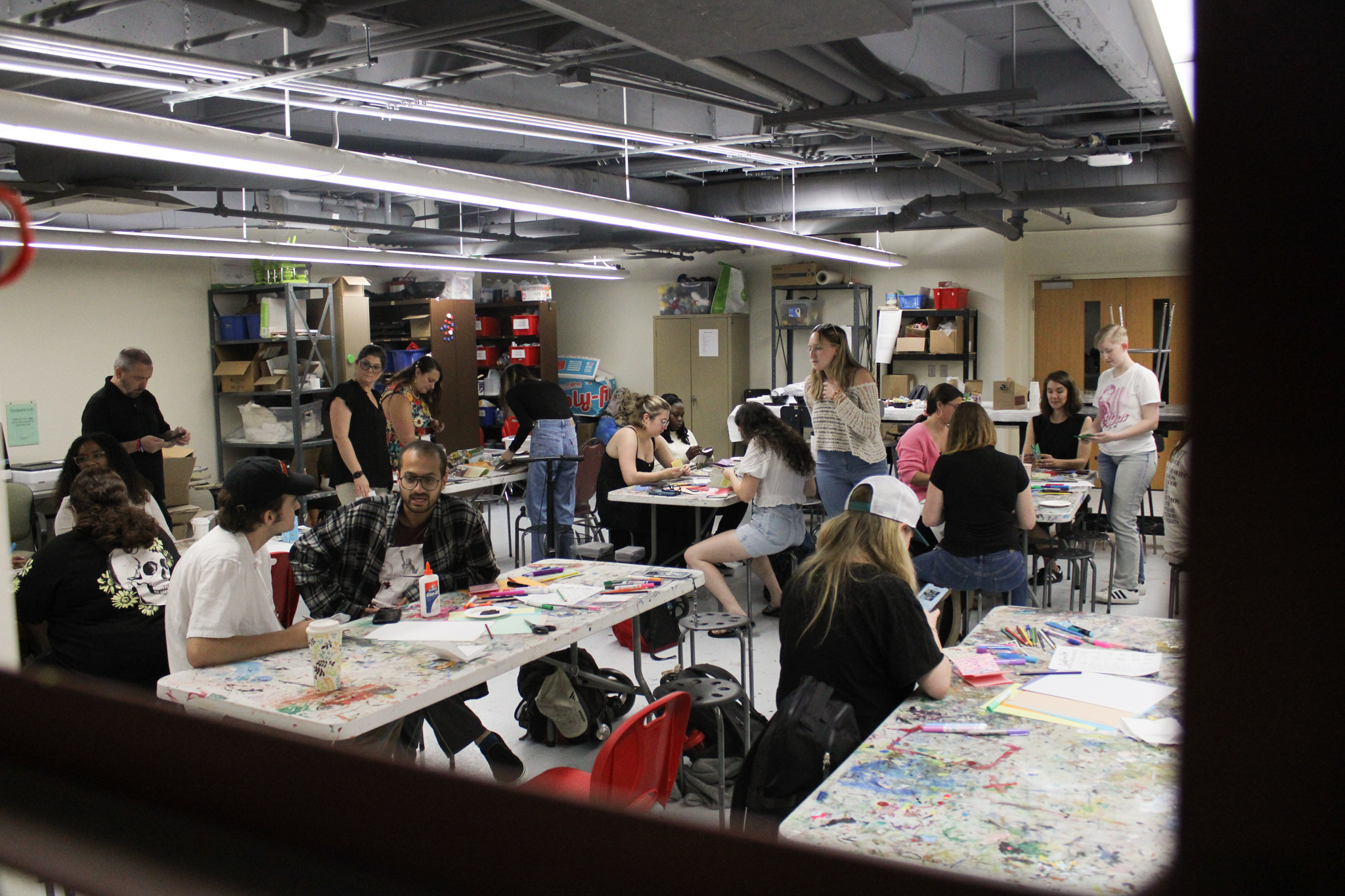Views expressed in opinion columns are the author’s own.
College is supposed to be a time for trying new things and developing new skills, and I thought it would be a great place to explore and expand my artistic hobbies.
But I was sorely mistaken.
For instance, I’ve always wanted to try ceramics, but materials have always been too expensive for me to pursue the art on my own dollar. I was excited to learn Studio A in Stamp Student Union has classes for all majors – ceramic sculpting being one of them. But my dreams were quickly crushed once I looked at the course’s price: a whopping $285.
I have spent hundreds of dollars on art supplies in my life, and have been gifted supplies adding up to much more than that. But as a busy college student with limited supplemental income, it’s hard for me to keep doing art. And I’m sure many others on campus feel the same way.
This is why the University of Maryland needs to ensure financial barriers don’t limit students’ access to the arts by expanding affordable resources, creating more learning and skill-building opportunities and helping students more easily reach the art hub of Washington, D.C.
While it’s great this university offers recreational art classes, they are clearly too expensive for most. There are also very few seats per section, which makes these classes out of reach for students who just want an affordable way to try out a new hobby. Creating free or lower-cost versions of these courses for students to take could go a long way toward helping students explore the arts on campus.
To make this prospect more financially feasible for this university, it could allow undergraduate art students to teach these classes for credit, as a type of on-campus internship. Art majors are already required to take nine elective credits to graduate. Teaching could be an enriching way for students to fulfill them — especially for those pursuing a career in art education.
This university’s art classes are not easily accessible for non-art majors. Currently, only introductory classes count for general education credits. They can’t explore art beyond that without sacrificing their four-year plans, since the courses don’t help with any graduation requirements. Creating interdisciplinary art classes incorporating aspects of other majors, such as a zine-making class or one like the “Illustrating Human Anatomy” course offered at the Rochester Institute of Technology, would allow non-art students to still explore their passions through the lens of their major.
Beyond creating more art classes, students should be able to affordably explore art on their own. Students can already easily rent laptops and cameras, so there’s no reason we can’t extend this to art supplies. The Art Library in the Parren J. Mitchell Art-Sociology Building is an excellent place to house art supplies such as paint, pens and collage paper that students can access without having to spend a fortune at the University Book Center.
This university should also host more school-sanctioned events in Washington, D.C., to allow students to explore the art scene. We have a city that boasts a rich and flourishing art history just a Metro ride away. Landmarks like the National Gallery of Art, National Portrait Gallery and the Hirshhorn Museum are all excellent places to ignite students’ artistic passions.
In a time where students are more stressed than ever, creative hobbies could give our students a productive outlet. Art is known to have positive effects on mental health, so allowing students open access to creative pursuits would greatly benefit those struggling on campus. It would create a better sense of community across different majors, who all want to pursue creative hobbies together.
While art has been a lifelong passion of mine, I worry I’m slowly losing it over time. Given how expensive it is to pursue, I’m sure the same is true for many other students. This university can and should reduce the steep financial barriers associated with exploring the arts. Then maybe I can finally take that ceramics class.
Isabella Cusack is a sophomore English and Public Policy major. She can be reached at icusack@umd.edu



